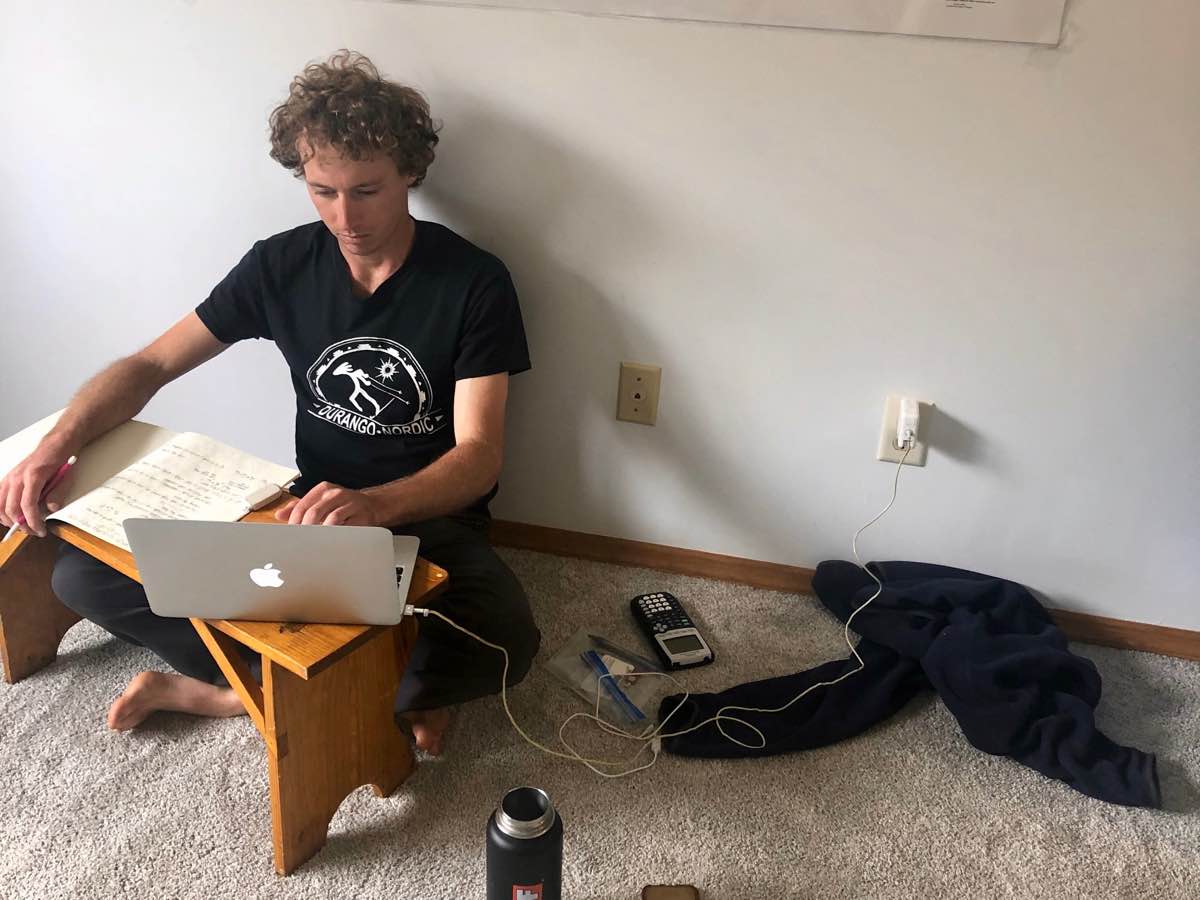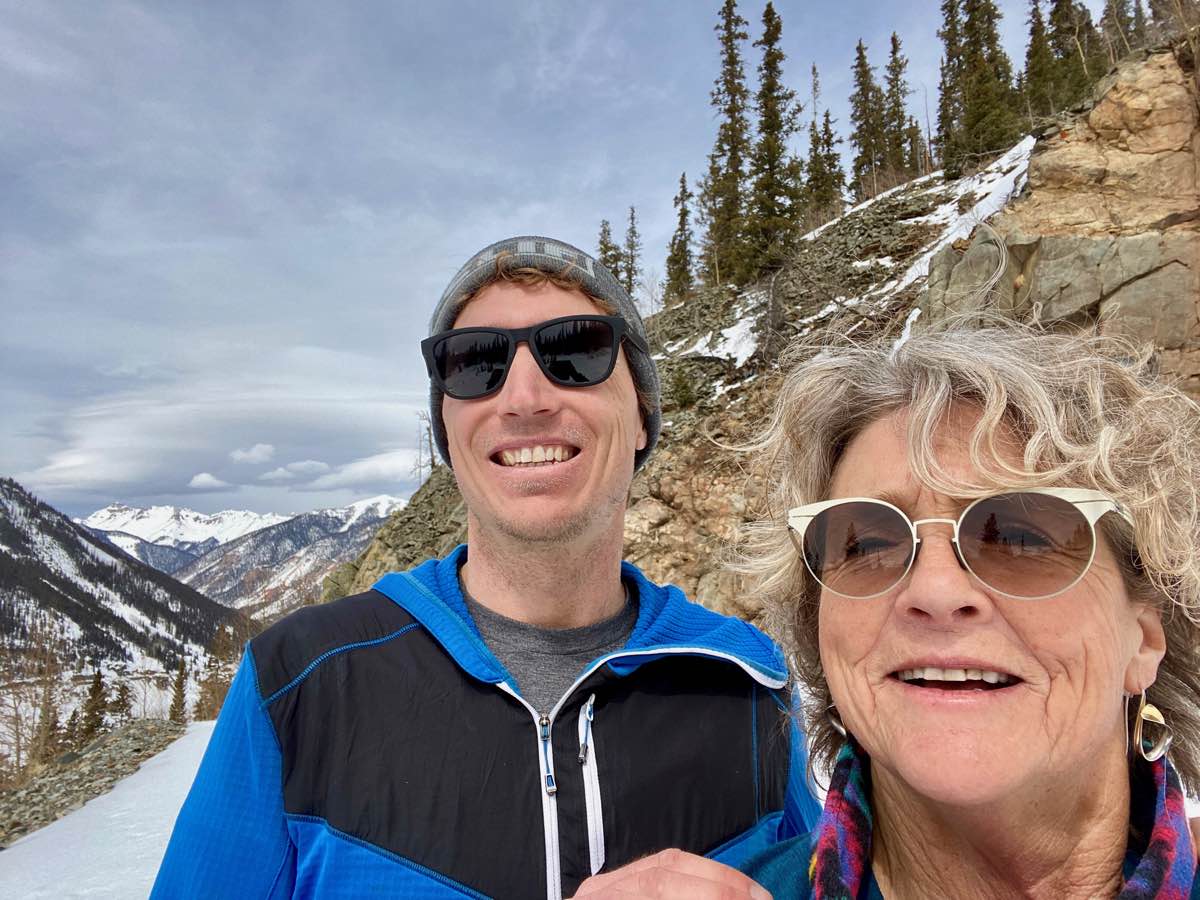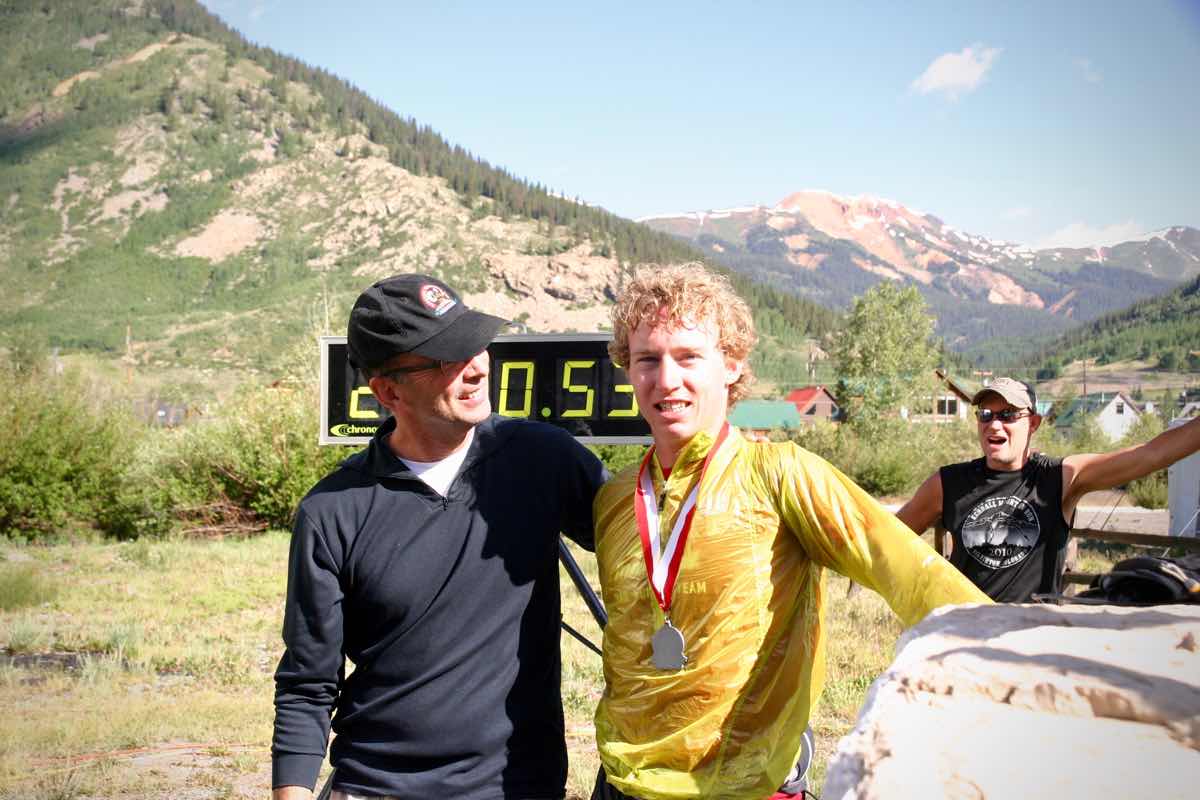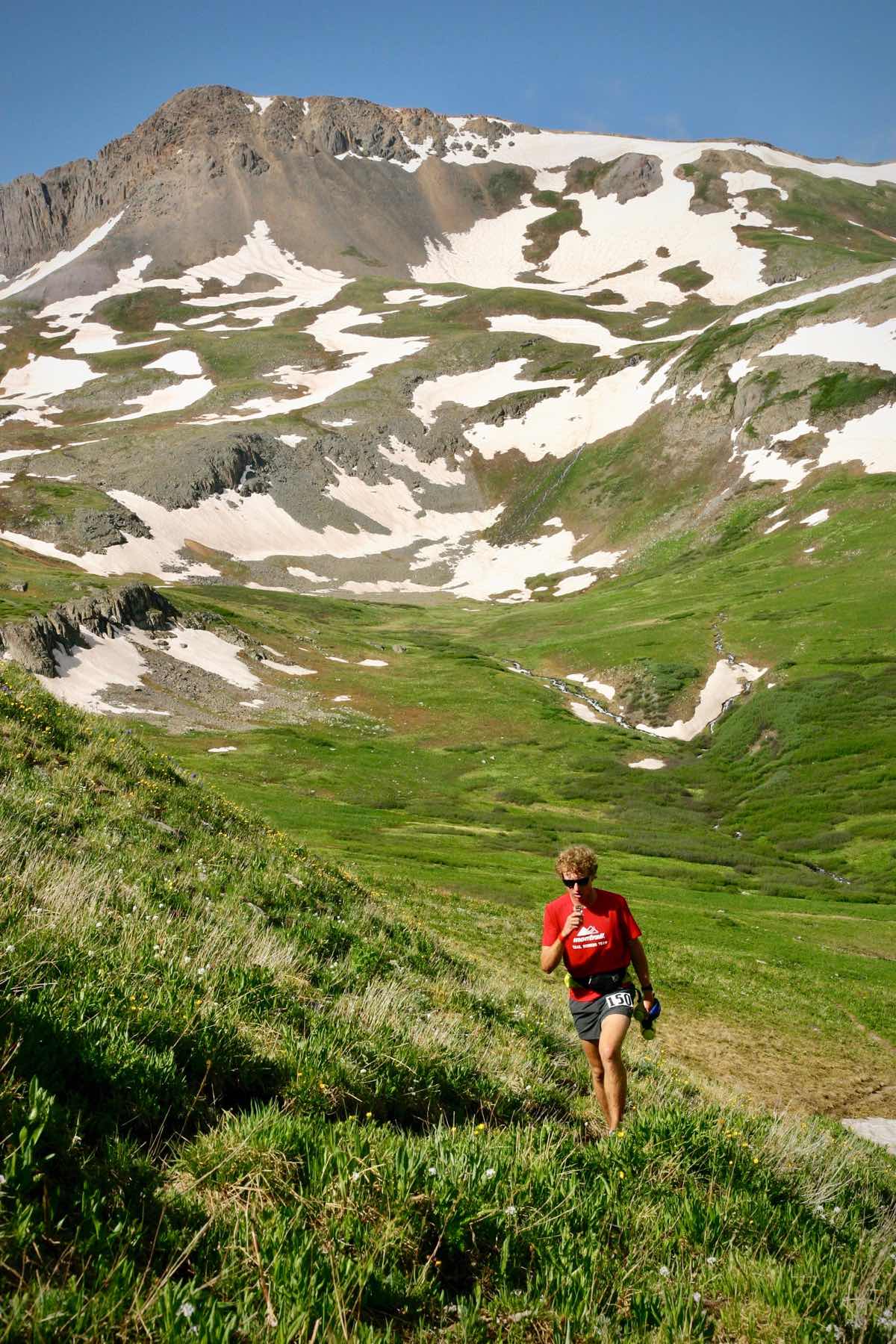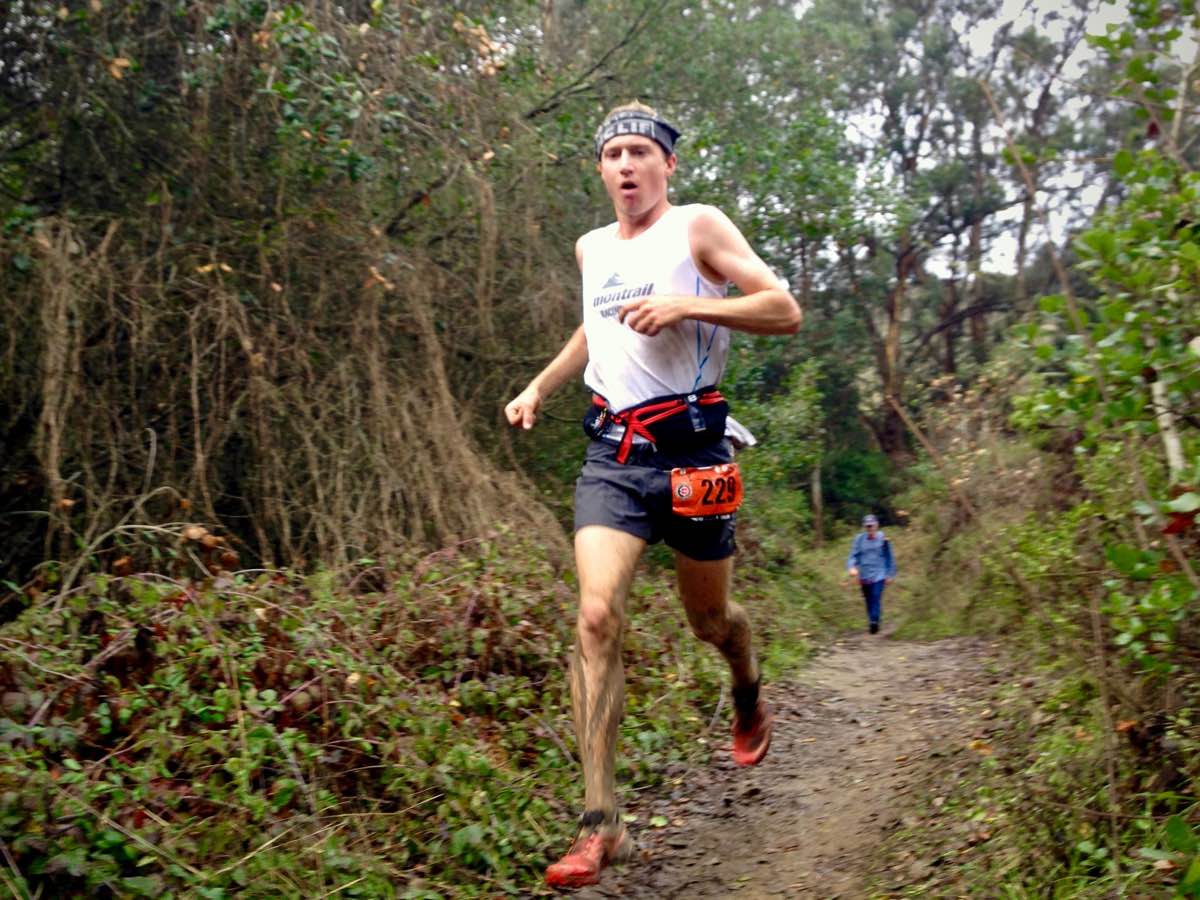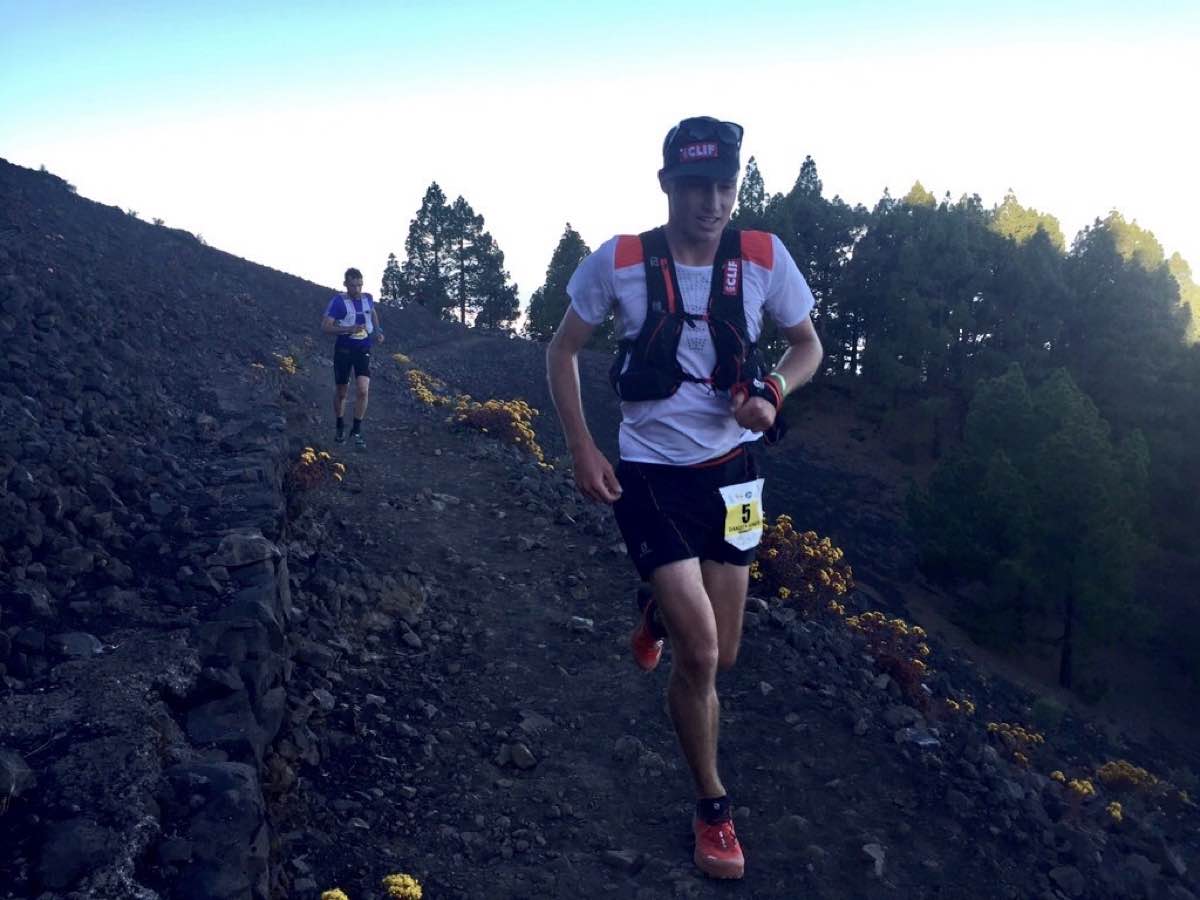
This week’s Catching Up With is sponsored by the Trail Running Film Festival. Watch live on June 6th!
“I think when I last talked to you, you were a freshman at Colorado State University,” I said to Dakota Jones last week. “Well, now I’m a freshman at Montana State University,” he answers right away. About 10 years have passed between the two universities.
Jones just finished his first year as an engineering major at the school in Bozeman, Montana. I ask about the motivation to go back to school as a then 28-year-old, now 29, and Jones immediately opens up. “I started getting more involved with environmental issues, and looking at ways to reduce my own impact and promote awareness [of environmental issues]. This long process led me to engineering school.”
He recounted his 2018 250-mile bike trip to and from the Pikes Peak Marathon. He won that race, but shrugged the bike commute off as a novelty while thinking about something greater. “It was a nice gesture, right? I saved some gas, but I still bought food in groceries. I wore clothes probably made in Bangladesh. People are going to keep driving and flying.” Jones had been involved with Protect Our Winters, a non-profit dedicated to climate change, and increasingly developed a passion for sustainability around this time.
He landed in Bozeman when finding a good school in a place where he wanted to live. His girlfriend of three-and-a-half years moved too. He had 15 hours of classes his first semester, and 14 hours the second. “That was quite enough. Holy shit, I’ve never been more stressed,” Jones recalled the academic load. The opening year was somewhat foundational but intense, and he had a calculus class, two physics classes, chemistry, two computer classes–including coding and a materials-engineering class, among others. “I just do math,” he deadpanned. Jones’s classmates were largely 10 years his junior, and he expressed a longtime admiration for older students that he then realized himself. He laughs, but didn’t lament that he wasn’t invited to many campus parties. Even cooler though, he is on the alpine search-and-rescue Team in Bozeman. And he still runs at a high level and was “really fit, psyched” ahead of a race season that was to include Transvulcania Ultramarathon, the Bighorn Trail Run 100 Mile, and the Pikes Peak Marathon. Only the Pikes Peak Marathon remains a scheduling possibility.
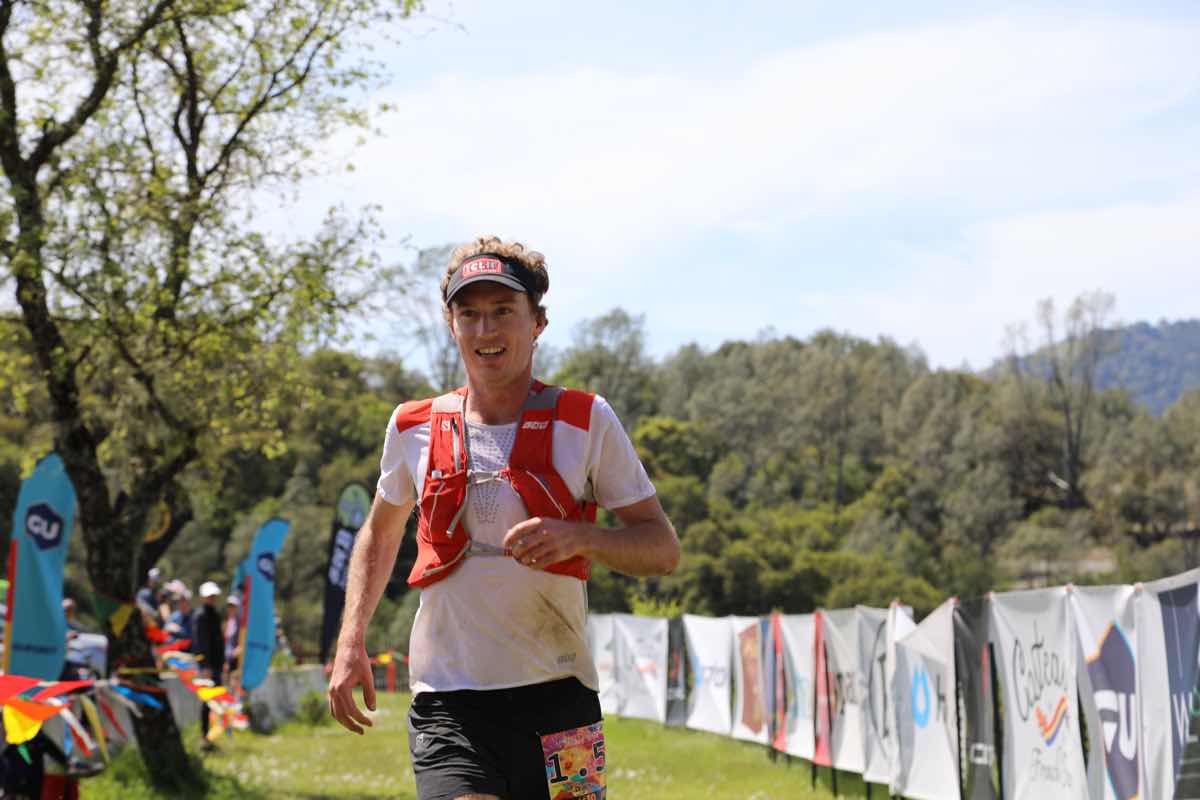
Dakota Jones on his way to taking seventh at the 2019 Lake Sonoma 50 Mile. All photos iRunFar unless otherwise noted.
Jones keeps coming back to outdoor gear made sustainably as a career goal, and points to Patagonia’s good work. “I don’t drive a lot, but there are a million things I could do better. I want to help make systemic changes and I think I can do that with engineering,” he says. “There are all kinds of things I could do [with engineering], and I know [my interests] will change over time, but in the outdoor industry a lot of materials are petroleum-based. With fleece and downs, things can be engineered with more sustainable materials.”
Jones alludes to his first-year Footprints Running Camp. “I went to Geoff Roes‘s camp in 2018 and was just really inspired. You’re in this amazing place and really get to know everyone and connect with them. I wanted to do something like that, but wondered how could I make it different?” The Footprints Running Camp combines two of Jones’s fires.
The camp, originally scheduled for July in Silverton, Colorado, has just been postponed to January in Moab, Utah due to the COVID-19 pandemic. Thirteen college-aged trail runners are expected to attend, and all have an environmental mission. It still hasn’t clicked for me and Jones explains more with examples, and a growing excitement in his voice. “There’s one runner from New York state. The Finger Lakes region has a lot of harmful algae blooms from agriculture and real estate. She’s going to do scientific testing and plan to present community-based solutions.” He moves to another. “In San Francisco a lot of organizations already exist, but one [attendee] is going to push to get more youth, minorities, and women in the outdoors. A coalition of organizations.” The goals of these runners, and of Jones, are profound.
“I’m not an expert and not qualified on all of these things, but I was able to get people that are and do. People with incredible experience and knowledge are coming to the camp,” he gushes of the connections and the willingness of these experts to partner. Four speakers–all either PhDs or candidates for a doctoral degree–will lead the camp, and then each attendee with pair one-on-one with a mentor. “The mentors will make the projects happen.” Jones’s passion is running now and he keeps going. “We want to tell the story as widely as possible,” and he talks about sharing the impact via several media types.
I hate to bring Jones off that high, but wanted to ask one more thing before we part. “The Young Money nickname, does anyone call you that still?” I prompt. He laughs. “No one called me that, maybe Bryon Powell. I’m just old and curly now.” And now I laugh. Jones is 10 years older than when we last spoke, but he’s still a lot of fun and it’s impressive to see his current goals.
Call for Comments
Go ahead, share a Dakota Jones story in the comments section!
